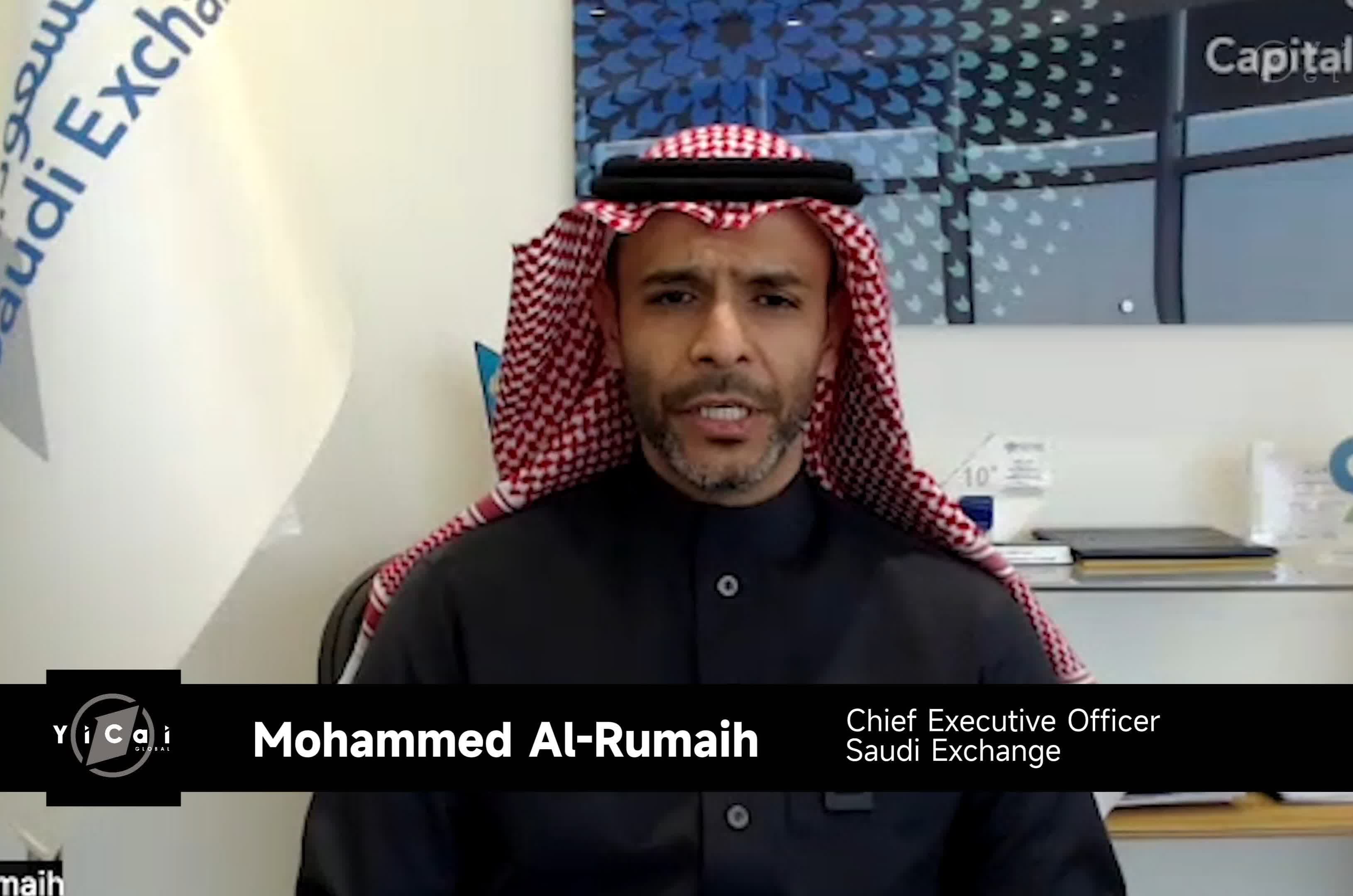
(Yicai) April 11 -- China is a very important market for the Saudi Exchange, Chief Executive Officer Mohammed Al-Rumaih recently told Yicai.
The bourse is committed to strengthening its relationship with Chinese exchanges, and discussions are underway with several Chinese asset managers to launch Saudi exchange traded funds in China and Chinese ETFs in Saudi Arabia, he said.
Excerpts from the interview are below.
Yicai: Saudi Tadawul Group has signed memoranda of understanding with Chinese exchanges. What other potential do you see for deeper collaboration between China and Saudi’s capital markets?
Mohammed Al-Rumaih: China is a very important market for us. We have collaborated on various benchmark studies, on areas such as exposure criteria, data analysis, corporate actions, and ESG. Our focus also lies in exchanging expertise. There are notable similarities between our market structures, which further strengthens our collaboration.
We’re experiencing an increasing and ever closer relationship between the Saudi and Chinese capital markets. As we look to build a new level of cooperation between Saudi Arabia and China, we are actively encouraging issuers from outside of the kingdom to consider listing in the Saudi capital market, and we have received inquiries following our efforts with our partner exchanges.
We’re now looking to build the infrastructure that will enable dual and cross listings across several markets from which we have received interest. We’ve seen some Chinese investors looking to invest in the Saudi capital market and they’re very interested. They’ve shown interest in various data points such as company profiles, their roles, and financial ratios. It appears they’re keen to elevate their involvement by investing in our markets.
We’re also aiming to enhance the relationship between the Saudi Exchange and Chinese exchanges with a key focus on enabling overseas issuers to dive into the deep pool of capital available on the market while creating attractive investment opportunities for our investors in the Saudi market.
We’ll continue to encourage foreign issuers to do cross listings or dual listings as part of our efforts and to build on the relationship. This is in addition to the MOUs that we've signed with the Chinese exchanges.
Yicai: You mentioned encouragement for issuers from outside of the kingdom. Do you welcome Chinese companies to go public in Saudi Arabia?
Mohammed Al-Rumaih: Many Chinese firms have had remarkable success stories and harbor ambitions to expand globally. Their aspirations align seamlessly with Saudi Vision 2030, enhancing the allure of the Saudi capital market and the Saudi economy more broadly.
Capital markets play a crucial role in providing the liquidity, transparency, and trust needed for a company to thrive. Given these factors, Saudi Arabia has emerged as an attractive destination for Chinese companies.
Yicai: What will be the main focus of your work in 2024?
Mohammed Al-Rumaih: We want to become the engine of Saudi Arabia as a global financial hub, and we want to continue to attract more international investment and enhance our existing products, whether it’s debt, equity, derivatives or structured products like ETFs.
We've seen the first Saudi ETF listed in Hong Kong. We wish to replicate that in other Chinese exchanges, and have reached the advanced stage with some Chinese asset managers for Saudi ETFs in China and have Chinese ETFs here in Saudi. This will further enhance the collaborative efforts we are currently undertaking with our partners in China.
We have multiple near-term objectives aimed at expanding the Saudi capital market. Our vision is to make Saudi Arabia the hub of capital formation for the Middle East/North Africa region. And we aim to do that through leveraging our global competitive advantages, expanding our commodities offerings, boosting our equity market, leading in product innovation, and expanding our existing index franchise and market data product offerings.
These goals will be achieved through various partnerships and connections that we are currently establishing.
Editor: Tom Litting